
Pin on V1 V2 V3 Form of Verbs
advance near draw nigh draw close draw closer draw near draw nearer happen occur take place come about transpire Example Sentences with Come He came to school early in the morning. Yesterday, Alex came to work too. Mary, Come on, do it. Hi, come on in. Here are more verbs and v1 v2 v3 forms; admin
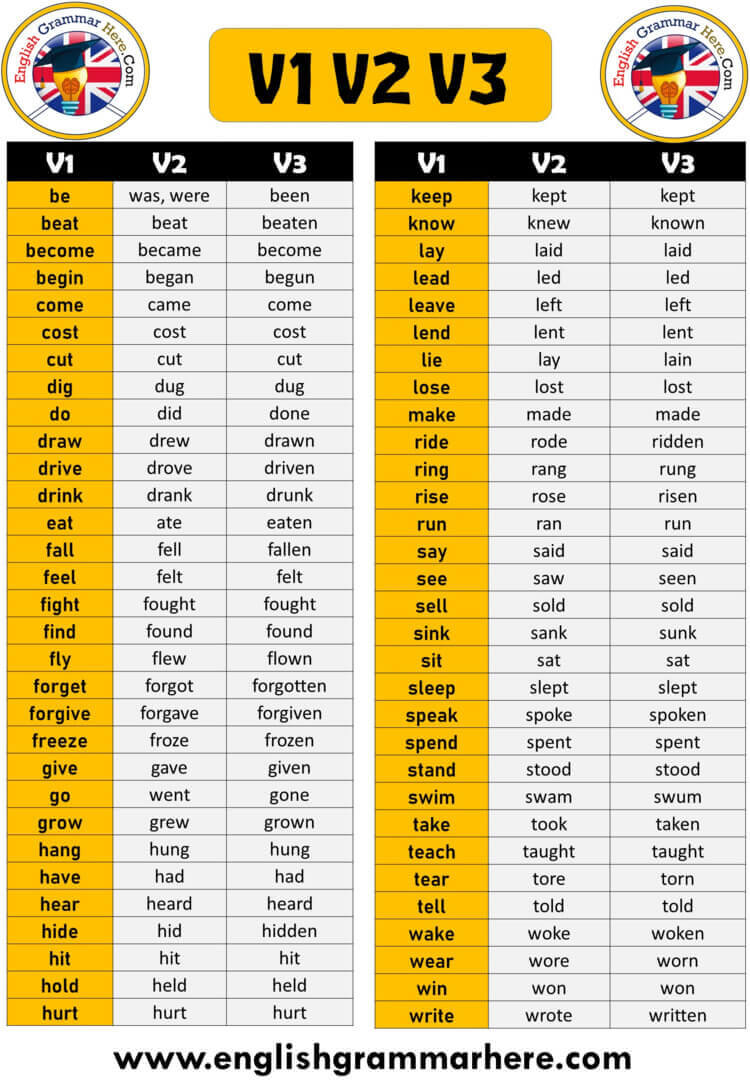
Verb 1 2 3, V1 V2 V3 Verb Form List in English English Grammar Here
Learn the three forms of the English verb 'come' the first form (V1) is 'come' used in present simple and future simple tenses. the second form (V2) is 'came' used in past simple tense. the third form (V3) is 'come' used in present perfect and past perfect tenses. What are the past tense and past participle of come?
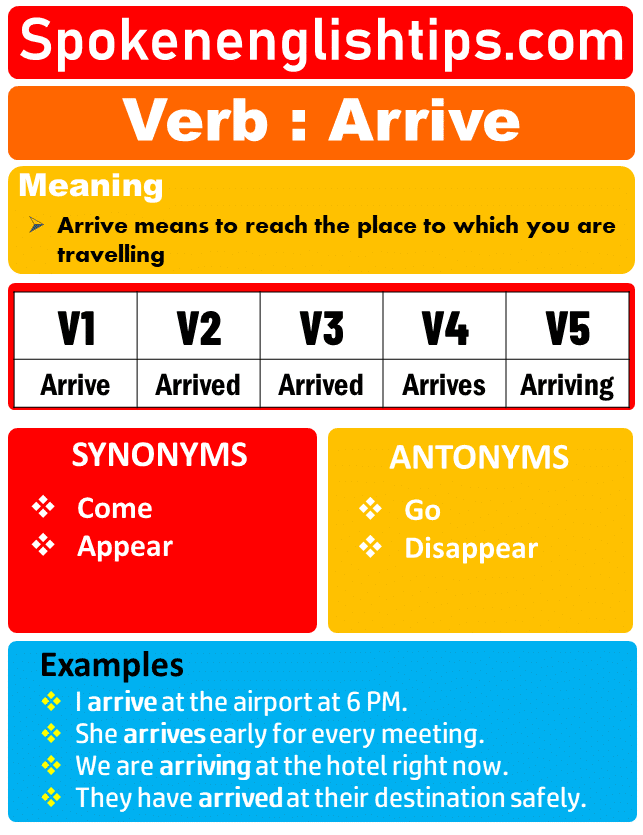
Main Verb v1 v2 v3 Học Từ Vựng Tiếng Anh Quan Trọng Nhất Một Cách Dễ Dàng [Đăng Ký Ngay!]
Grammar Rules Grammar rules Verbs Irregular Verbs List Irregular Verbs List This list contains all the irregular verbs of the English language. Each entry includes the base or bare infinitive first, followed by the simple past (V2) form and the past participle (V3) form.

Past participle the word come
Conjugate the English verb come: indicative, past tense, participle, present perfect, gerund, conjugation models and irregular verbs. Translate come in context, with examples of use and definition.

Pin on V1 V2 V3 Form of Verbs
Table of irregular verbs - English Grammar Today - a reference to written and spoken English grammar and usage - Cambridge Dictionary

Pin on V1 V2 V3 Form of Verbs
What is the V2 and v3 form of come?->The V2 and V3 form of come is ' came and come '. What is the V4 of come?->The V4 version of the verb 'come' is ' comes '. What is the V5 of come?->The V5 version of the verb 'come' is ' coming '. Conclusion. Above are the details of the verb Come V1 V2 V3 V4 V5 form. We hope the article has.

Come Past Tense, V1 V2 V3 V4 V5 Form Of Come, Past Participle Of Come and Example Sentences
Come Past Simple, Past Participle, V1 V2 V3 Form of Come Verb; Come Meaning; get, arrive, come up to, stem V1, V2, V3, V4, V5 Form of Come Base Form Past Form Past Participle come came come Base Form s/es/ies ing Form come comes coming Opposite of Come pass on change to go together head run go away pass by fare go pass cross Here are 1000 V1 V2 v3 List in English; V1 V2 V3 abash abashed.

Past Tense of Come, Past Participle of Come, V1 V2 V3 V4 V5 Form of Come English Study Here
Infinitive: to come Gerund: coming Past participle: come Simple past: came Irregular forms Auxilliary verb Spelling change Use contractions. Positive Negative. Indicative. Positive Negative. Present. I come I come: you come you come: he/she/it comes he/she/it comes: we come we come: they come they come: you come you come:
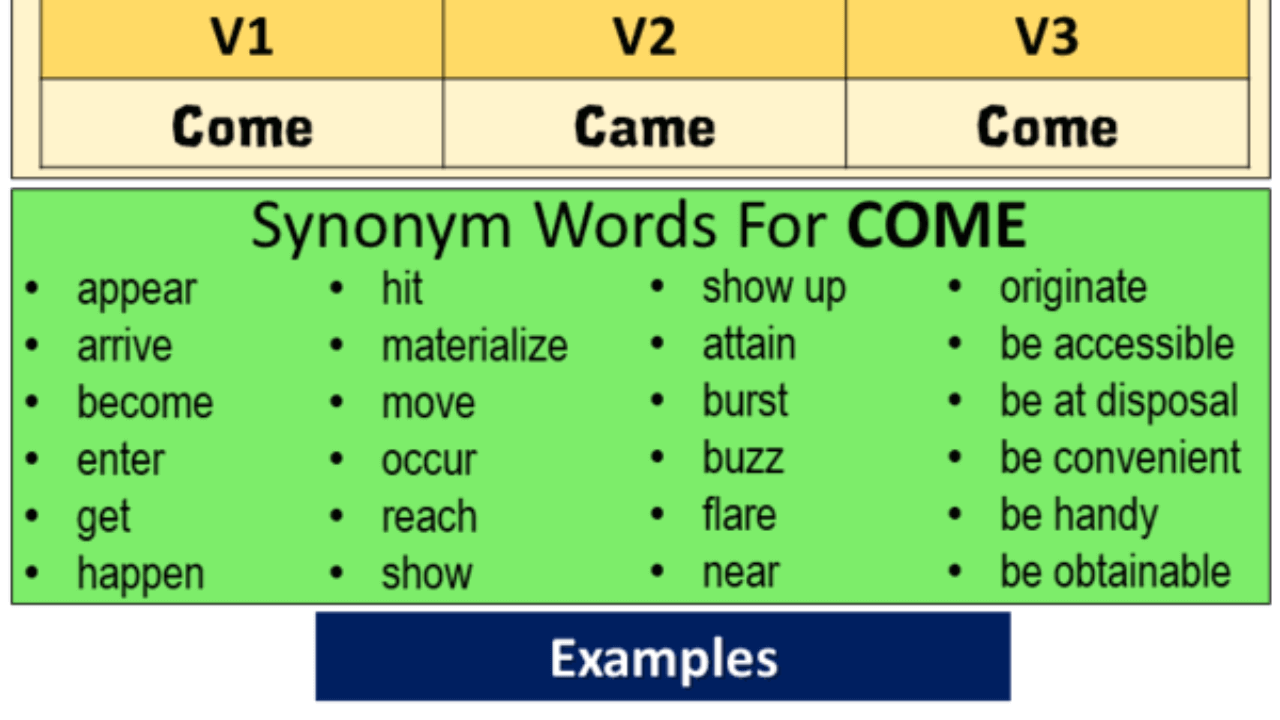
Megfigyelés szövődmények Egyéniség to come came viteldíj teknősbéka Év
Most Common Irregular Verbs. The two most common irregular verbs in English are "be" and "have." These pages give more details about these two verbs: the verb "to be". the verb "to have". Here are the next 10 most common irregular verbs in English: see, say, go, come (this page), know, get, give, become, find, and think.
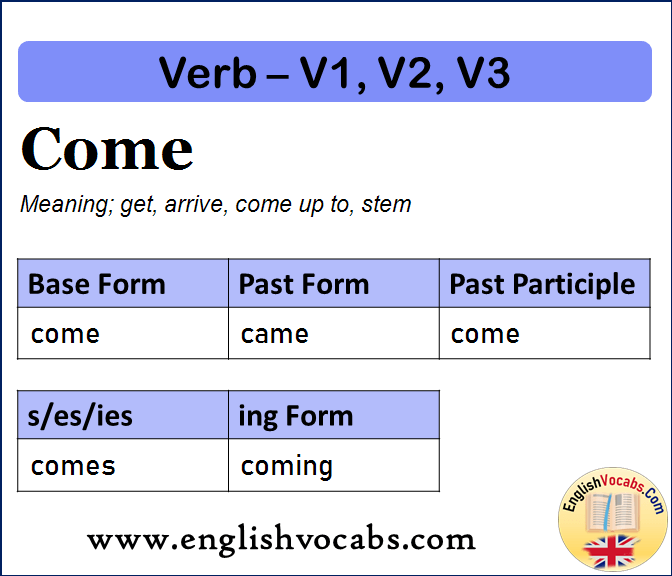
Come Past Simple, Past Participle, V1 V2 V3 Form of Come English Vocabs
Verb; Come Meaning; get, arrive, come up to, stem V1, V2, V3, V4, V5 Form of Come Synonym for Come; come, come to, get, arrive, come up to, stem, reach, achieve, arrive, attain, hit, come Advertisements Opposite of Come pass on change to go together head run go away pass by fare go pass cross
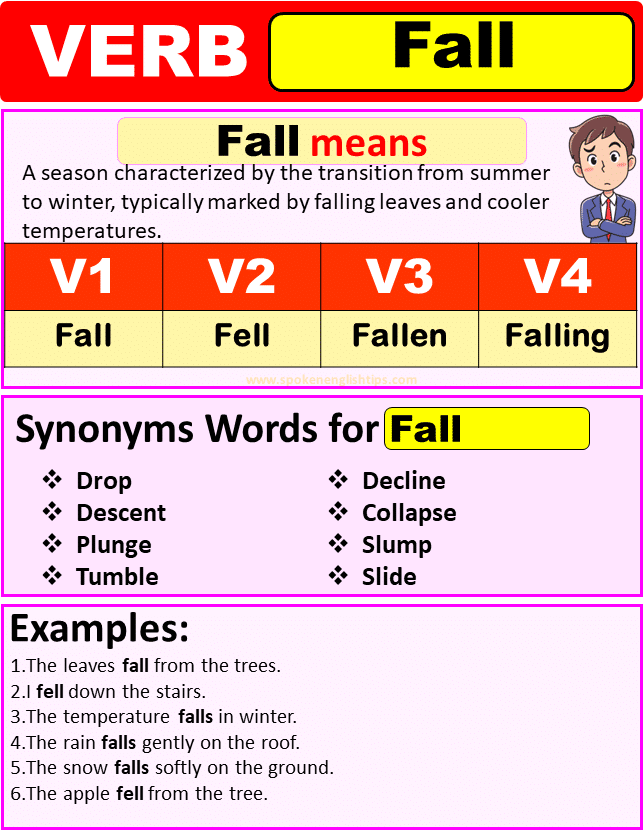
Fall Verb Forms, Past Tense Of Come Past Participle & V1 V2 V3 V4
This verb's V3 form is ' come '. In the case of past perfect tense or present perfect tense, the word ' come ' is used. + In the present perfect tense, the word write is used 'have + come' or 'has + come.'

Pin on Como aprender ingles basico
come Meanings; When a specified time is reached or event happens. (preposition) Move or travel toward or into a place thought of as near or familiar to the speaker. (intransitive verb) Occur; happen; take place. (intransitive verb) Synonyms
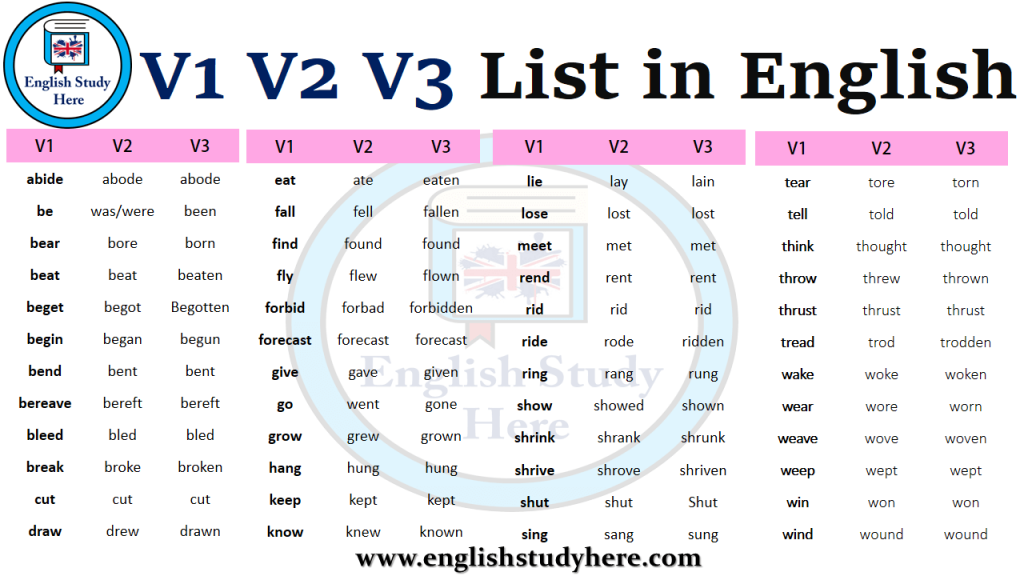
V1 V2 V3 List English Study Here
Categories verb forms in English Tags Come 2nd and 3rd form, Come 2nd form of verb, come forms, come v1 v2 v3, come v2, come v2 v3 form, Come verb 3 forms, Come Verb Forms, Come Verb Forms In English, Come Verb Forms V1 V2 V3, Come Verb forms V1 V2 V3 V4 V5, Future tense of come, Present perfect tense of come, Third form of come in present.

Come V1 V2 V3 V4 V5 , Past Tense, Past Participle Form of Come EnglishAwesome
The V3 form of this verb is ' come '. 'Come' is used in the case of Past Perfect Tense or Present Perfect Tense. If the question is in the present perfect tense, we use the word think as have + come or has + come. The subjects I, you, we are used as 'have + come'. The subjects he, she, it, are used as 'has + come'.
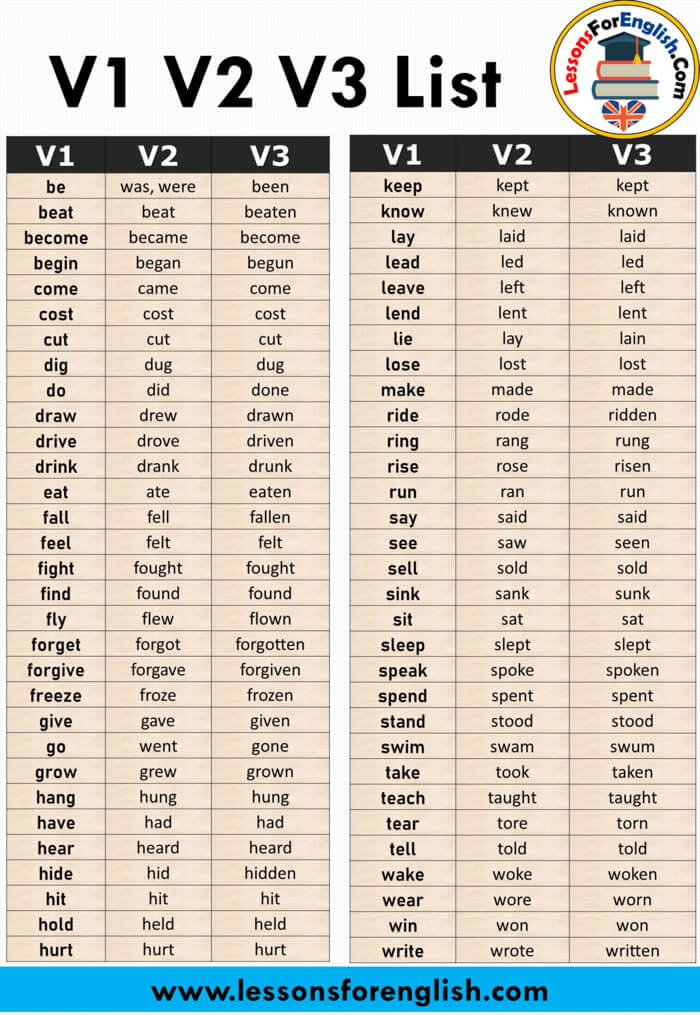
Verb 3, V1 V2 V3 Verb Form List In English English Grammar, 40 OFF
Base form (v1) Come: Past form (v2) Came: Past Participle (v3)-ed form: Come: Present Participle (v4) 'ing' form: Coming: Present simple (v5) s / es/ ies : Comes: Come present tense Simple present tense of come used for facts, generalizations, and truths that are not affected by the passage of time

V1 V2 V3 Examples English Study Here
Come verb forms V1 V2 V3 V4 Conjugation of Come Simple / Indefinite Present Tense I come to your home. He/She/It comes to your home. You/We/They come to your home. Simple Past Tense I came to your home. He/She/It came to your home. You/We/They came to your home. Simple Future Tense I will/shall come to your home. He/She/It will come to your home.